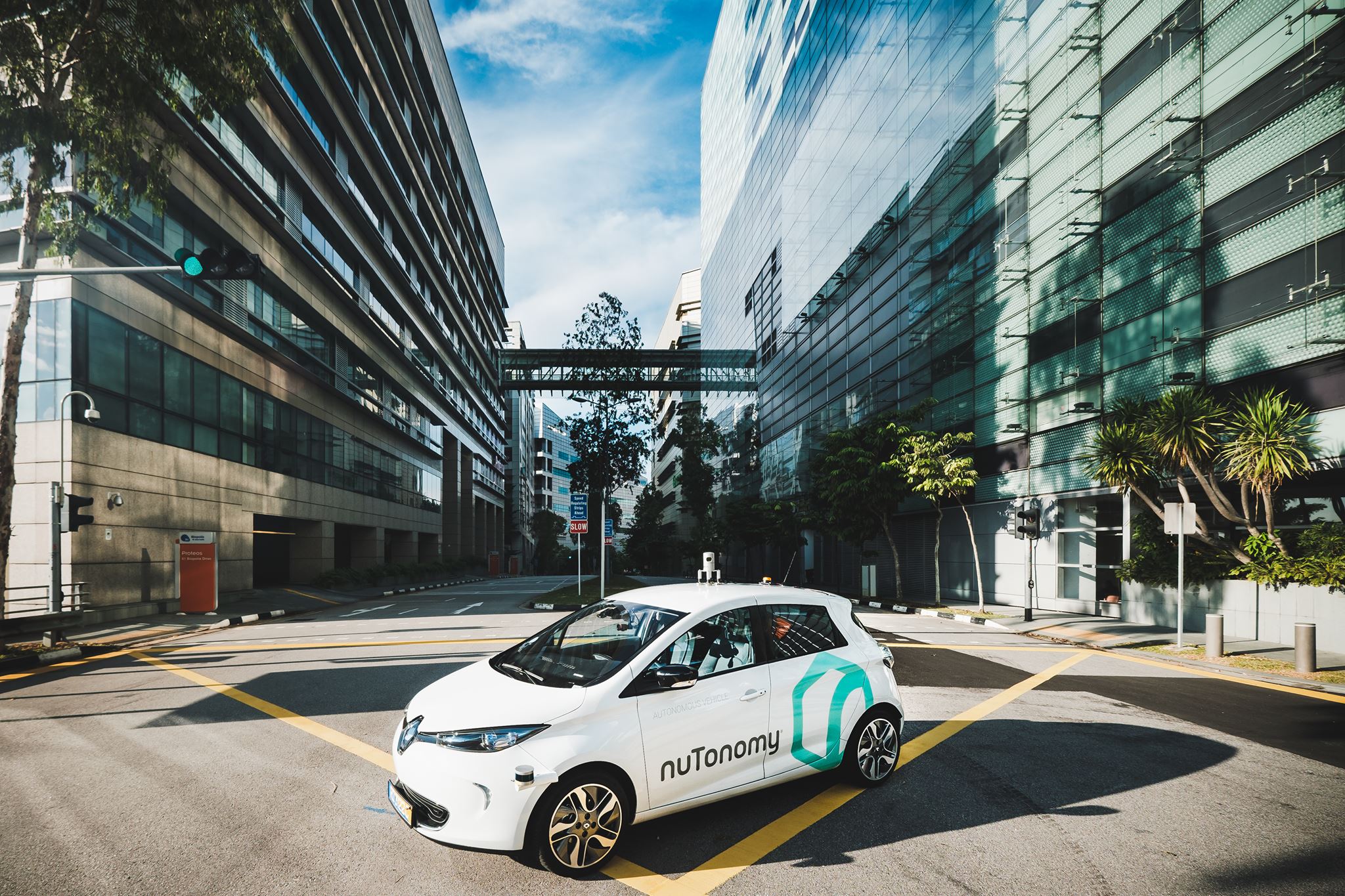Last week, Singapore got one step closer to seeing self-driving vehicles become a permanent reality on our roads. NuTonomy announced the next step in their trial project – a partnership with Grab.
For the uninitiated, nuTonomy has been trialling self-driving vehicles since August at One North. This new partnership expanded the pool of participants to include commuters of the ride-hailing app, Grab, to book a self-driving car within One North as well as the surrounding districts.
This enables nuTonomy to access Grab's traffic and commuter travel data which will better help them study how passengers can use self-driving vehicles as a viable commuting option, which nuTonomy is planning to launch in 2018.
The question on all our minds is: Are self-driving vehicles really such big deal? Of course they are.
Literally keeping your streets safe
For one, the biggest benefit is safety. In 2014, there were 154 fatalities and close to 10,000 accidents on Singapore roads. Technology has advanced so rapidly, a computer is now so much more powerful than a human being that it is able to ‘think’ and respond at speeds much quicker than what is humanly possible - a huge boon for road safety.
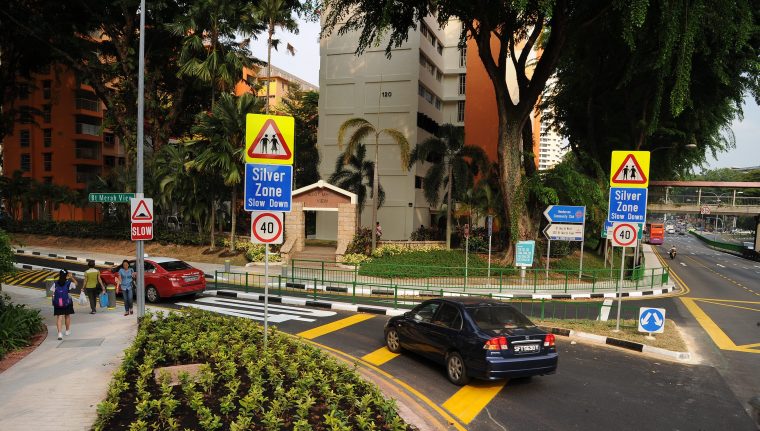 Self-driving cars keep your roads safer than a Silver Zone. Source.
Self-driving cars keep your roads safer than a Silver Zone. Source.
On a related note, consider that self-driving vehicles are a godsend to elderly pedestrians. Traffic accidents involving the elderly have been on the rise in recent years, such that the authorities have introduced Silver Zones - road crossings which have lower speed limits, new road markings and curved sections - which force drivers to slow down. Taking away the (error prone) human element in driving will definitely make it safer for the elderly - a group of citizens which are projected to form the bulk of our population in the future.
No worker? Get robots
Automation is also the order of the day when your future workforce is projected to shrink faster than you can say 'ageing population'. Today, there are almost 5 working age citizens (age 20 - 64) for every 1 old age adult (age 65 and above). By 2030, this ratio is going to shrink to about 2 working age citizens for every 1 older adult.
With lesser working adults, it makes sense that some jobs have to be done by machines, which in some cases, can perform these jobs more efficiently. Even today, automation is already creeping into our lives in the likes of fast food self service kiosks and that vending machine cafe in Anchorvale.
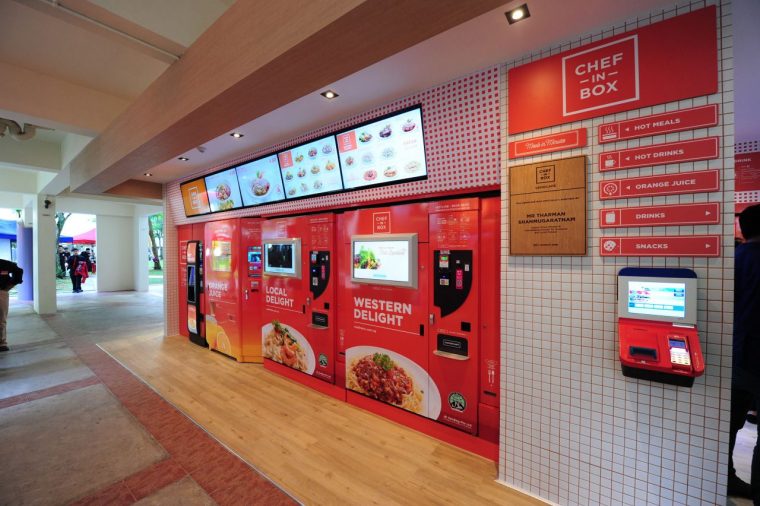 If you listen carefully, you might hear robots singing while whipping up your spaghetti inside these vending machines. Source.
If you listen carefully, you might hear robots singing while whipping up your spaghetti inside these vending machines. Source.
No need for TrafficWatch
Lastly, if peak hour PIE congestions are what triggers your inner Mr Hyde, then self-driving vehicles are here to save you by making traffic jams a thing of the past. This video perfectly explains how this works.
 Sorry, self-driving cars can't solve this. Source.
Sorry, self-driving cars can't solve this. Source.
In essence, human driving is imprecise and hampered by slow reaction times, which lead to over-braking and congestion build up. Conversely, the ability of self-driving vehicles to communicate with other vehicles on the road at lightning speeds ensures that vehicles can move off and stop exactly at the same time, increasing the throughput on the road, and theoretically eliminate road congestion.
They're coming for you(r jobs)
All these are fine and dandy, but it's foreseeable that self-driving cars won't have a smooth ride ahead (see what we did there?).
If computers are going to take over the driver's seat, then it is highly possible that one day, drivers of taxi and trucks and other things that move on wheels would be out of a job. It only took 16 years for us to get rid of drivers on our trains. We're guessing it won't be long before you won't be speaking to an Uber driver.
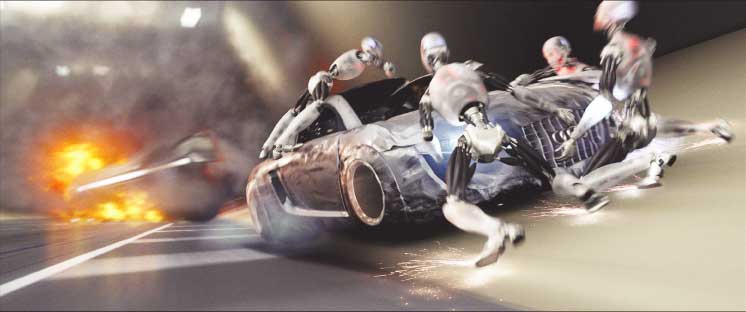 Not quite what we meant when we said "robots are taking over your cars". Source.
Not quite what we meant when we said "robots are taking over your cars". Source.
It wouldn't be a problem if these drivers have other skills to turn to but chances are many of them are going to be left out in the cold when robots take over their jobs.
Not so inclusive after all
Self-driving cars also present a problem for passengers who require the presence of an actual human being in the car. For example, disabled passengers in wheelchairs can't hoist themselves into self-driving cars.
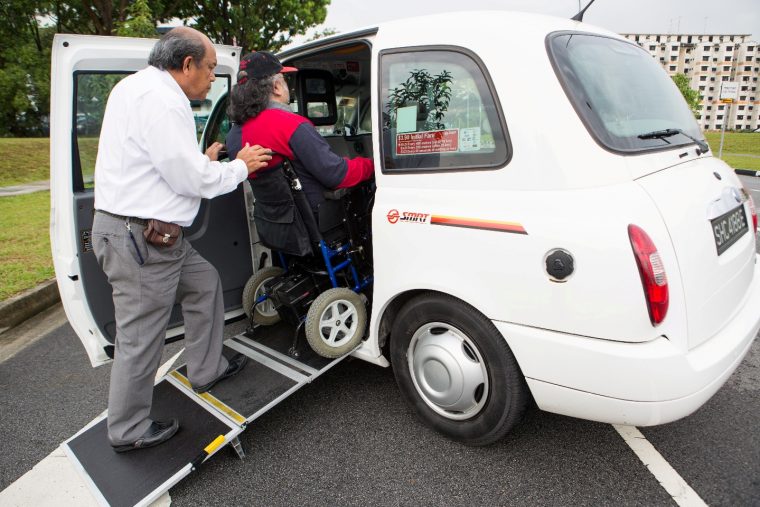 Self-driving cars can't do this. Source.
Self-driving cars can't do this. Source.
Granted, disabled passengers make up only a small portion of public transport commuters, but private hire taxis are at times the only way for them to reach their destinations. Removing the driver only removes that extra pair of helping hands for people who really need them. Perhaps some thoughts could go into ensuring disabled commuters aren't left behind.
Blame game
Theoretically, self-driving cars are safer but it is impossible to rule out accidents on the road. Google has been testing their own self-driving vehicles for awhile now and there have been reports of accidents, mostly caused by other human drivers who rear end Google's self-driving vehicle.
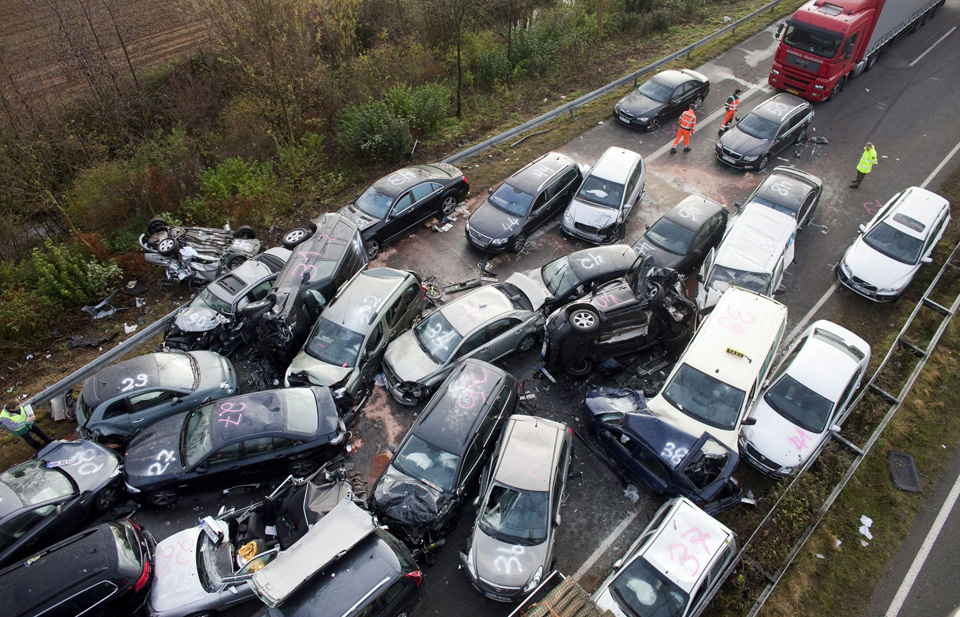 Uh-oh. Who's in trouble? Source.
Uh-oh. Who's in trouble? Source.
Earlier this year, Google's self-driving vehicle made an error in judgement and moved into the lane of an oncoming bus, causing a crash but resulting in no injuries.
Who is to be blamed when a computer makes an error in judgement which results in injury, or worse, death? This scenario was chillingly brought to life in the case of a Tesla S Model driver who was crushed under a tractor trailer while on autopilot mode. These are conundrums that need to be trashed out quickly before self-driving vehicles start plying our roads.
So yes, self-driving vehicles are a big deal. While there's something cool about being driven around by a computer, it is also a bit unnerving to entrust so much into the hands (?) of a robot. Will commuters take to it? Guess we'll see in 2018.
Related articles:
People in the One-North area can start taking driverless taxis from today
Top photo from nuTonomy Facebook page
If you like what you read, follow us on Facebook and Twitter to get the latest updates.
If you like what you read, follow us on Facebook, Instagram, Twitter and Telegram to get the latest updates.
